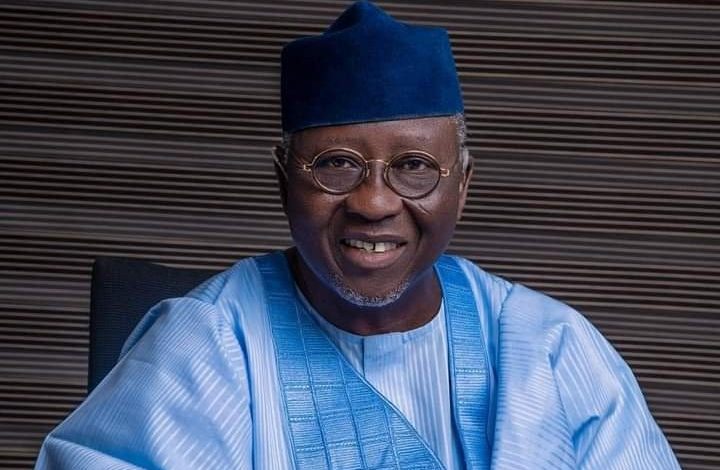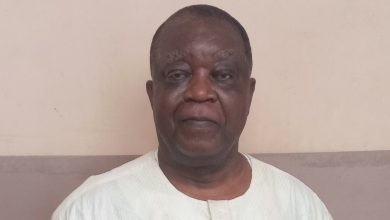The calm within the storm: Why Al‑Makura must lead APC now

BY ADEDAYO ADEJOBI
In the grand theatre of Nigerian politics, moments of crisis demand more than bargaining and bravado. They call for poise and profound purpose.
As the APC wrestles with internal fractures and waning public confidence, Senator Umaru Tanko Al-Makura emerges not merely as a solution, but as the antidote: a statesman whose essence is unity, whose instinct is calm, and whose experience is unmatched.
Nigeria’s commitment to zoning is not tokenism; it is democracy in practice. With the national chairmanship slotted for north-central, Nasarawa state—home of the former chair, Abdullahi Adamu—stands at the helm.
Enter Al-Makura: not the former’s echo, but his complement. His ascendancy would anchor regional representation in integrity and evolution, not redundancy.
Nasarawa redeems its moment, not through entitlement, but through excellence and equity. The north‑central Forum’s emphatic endorsement underlines this imperative—no assertion of privilege, but of principled continuity.
The APC’s roots draw strength from three blocs—ACN, ANPP, and CPC. Yet despite birthing President Buhari and championing reformist creed, the CPC has never held the chairmanship. That historical silence ends with Al‑Makura, CPC’s lone governor in 2011. His leadership would finally rebalance the legacy equation.
This is not tokenism. It is justice— a revitalisation of CPC pride and agency within APC’s evolving narrative.
Al-Makura’s career straddles Nigeria’s executive and legislative pinnacles. As Governor (2011–2019), he garnered respect across the governors’ forum. As Senator (since 2019), he has been recognised for legislative dexterity.
He is not a distant figure; he is one of theirs—a connector between Governors and the National Assembly. His leadership would be a clarion call to harmonise both engines of democratic power within APC.
Today’s greatest threat to APC is not opposition—it is internal breach. Al-Makura, the architect of reconciliation—Ekiti, North-East, national convention—knows this well. He accepted the 2022 consensus for Adamu without rancour.
Amid swirling rumours of factionalism, his voice has been repeated: unity over division, dialogue over discord. He stands not for words, but for genuine healing—a healer in a house often haunted by division.
The makings of a statesman lie in unspectacular fidelity. When defections lured many CPC originators, Al-Makura remained. When speculation swirled around alignment with El‑Rufai or others, he gathered former CPC colleagues at his Abuja residence to affirm loyalty to APC and President Tinubu’s agenda.
His was not shifting allegiance; it was enduring fidelity—a rare currency in contemporary politics.
Al-Makura’s presence is not commanding—it is encompassing. Described as approachable, unpretentious, and personally attentive, he personifies leadership as service.
Skilled in personal connection—remembering names, offering high-fives, smiling with sincerity—he leads not from above, but from within. This human touch is the heartbeat of political healing in a world hooded by strategy.
APC stands at a critical fork: internal strife threatens policy coherence; looming 2027 campaigns await unity. The party cannot afford to treat chairmanship as routine—it must be an act of statesmanship.
Al-Makura is calibrated for this juncture: not for short‑lived consensus, but sustained cohesion; not for spectacle, but substance. He embodies the quiet, disciplined, and deeply loyal leadership APC now demands.
In his words: “True loyalty is tested not in comfort, but in travail”. This maxim is carved into his politics. It speaks to a leadership that does not abandon counsel when convenient, but stands firm when tested.
Comrade Daniel Onjeh’s tribute— “a round peg in a round hole”—echoes across Nasarawa and beyond. No metaphor could be more fitting: Al‑Makura is the consensus candidate fashioned by conviction.
Picture a gathering where tempers rise, allegations fly, and ambitions clash. Into that arena steps Al‑Makura—quiet, assured. He doesn’t silence dissent; he translates it into direction. He doesn’t demand allegiance—he invites collaboration. He does not dominate the stage—he creates the platform.
In his calm, we find clarity. In his humility, we find honour. In his loyalty, we find leadership that lasts.
This is not the time for posturing. It is time for purpose. The APC must choose not who shouts loudest, but who sustains unity. Not who claims credit, but who cements legacy. Not who rallies rallying cries, but who reconciles realities.
The APC deserves a chairman who is not merely political, but principled. Not just ambitious, but accountable. Not transient, but transformative. It must choose Umaru Tanko Al‑Makura.
“When the nation’s political tempest raged, Al‑Makura was the calm within the storm—and now, APC must seize this moment.”
In his leadership, APC will not just weather the storm—it will chart a course beyond it.
Adejobi, is an analyst, who writes from Lagos





